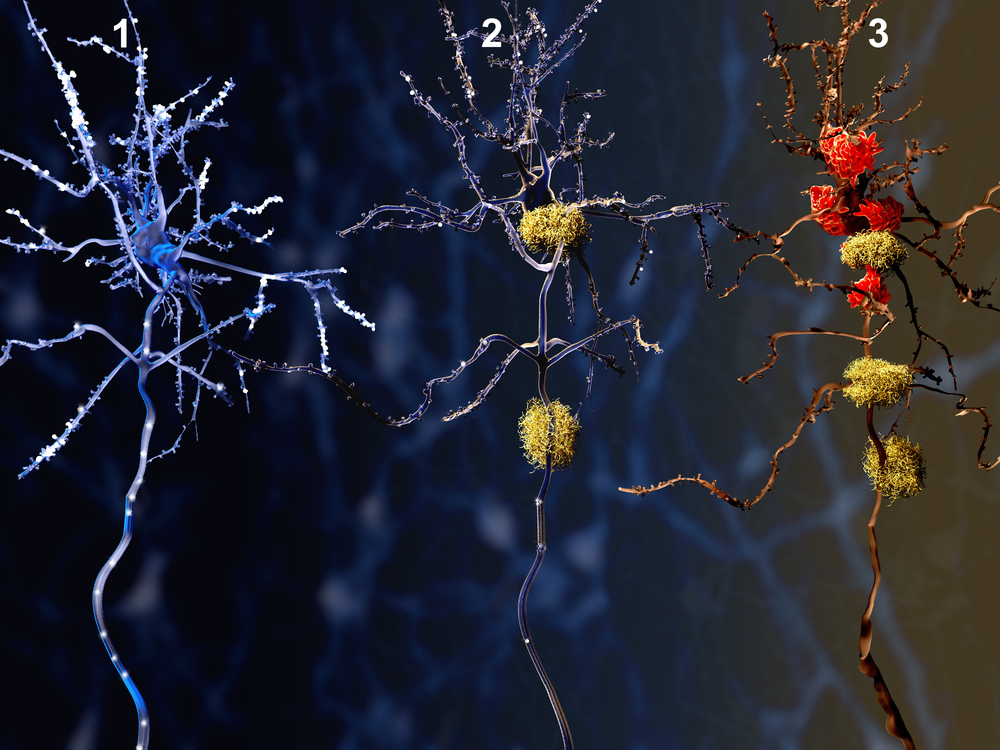New Alzheimer’s Therapy Shows Promise in Reducing Amyloid Plaques in Brain

An investigational treatment for Alzheimer’s disease (AD) could be on the horizon, according to a study from researchers at Biogen and the University of Zurich. Aducanumab, a human monoclonal antibody, shows evidence of reducing Alzheimer’s amyloid plaques — the culprit behind AD-induced brain cell death.
The treatment candidate is potentially the first of its kind, since current medications for Alzheimer’s slightly delay symptoms and do not prevent the disease from progressing.
The research report, “The antibody aducanumab reduces Abeta plaques in Alzheimer’s disease,” was recently published in the journal Nature.
Previous studies in mouse models of AD showed reductions in the sticky brain amyloid plaques with injections of aducanumab. In this trial, humans with mild Alzheimer’s disease received intravenous aducanumab for one year. A total of 165 patients participated in the study and received treatment from October 2012 to January 2014 at 33 clinical sites in the U.S. Participants in the study received monthly intravenous infusions of a placebo or aducanumab at four different increasing doses.
As the dose increased, so did improvements in clinical measurements of cognition and memory, known as Clinical Dementia Rating—Sum of Boxes and Mini-Mental State Examination scores. Even more remarkably, brain amyloid plaques decreased, and were almost completely gone in the group that received the highest dose of medication.
“The results of this clinical study make us optimistic that we can potentially make a great step forward in treating Alzheimer’s disease … ,” Prof. Roger Nitsch of the Institute for Regenerative Medicine at the University of Zurich said, according to The Telegraph.
“Despite it being a small sample, there appeared to be a slowing of cognitive decline and functional decline. The group with a high degree of amyloid removal were basically stable. If we could reproduce this it would be terrific,” Nitsch said.
Additional studies are needed for the FDA to consider approving the medication — which could take years, since the current study is a Phase 1 trial, and phases 1 through 3 in human clinical trials are required by the U.S. Food and Drug Administration (FDA). This study could be a crucial step toward the first disease-modifying medication for the treatment of Alzheimer’s disease.
“This is the best news that we have had in our 25 years and it brings new hope to patients with this disease,” said Dr. Alfred Sandrock, from the Massachusetts-based biotech company Biogen.






